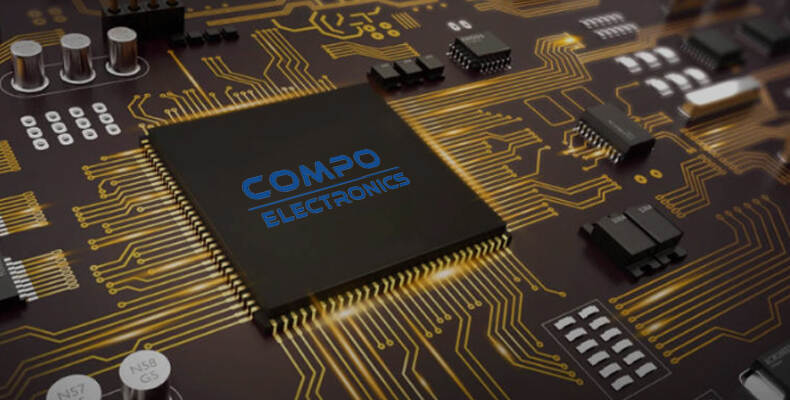Email format error
Email cannot be empty
Email already exists
6-20 characters(letters plus numbers only)
The password is inconsistent
Email format error
Email cannot be empty
Email does not exist
6-20 characters(letters plus numbers only)
The password is inconsistent


The Rise of Special Purpose ADCs in Modern Technology
In the ever-evolving world of technology, the need for precision and accuracy has never been greater. As industries advance, the demand for specialized components increases, and one such component that has seen a significant rise in demand is the Special Purpose Analog-to-Digital Converter (ADC). These unique devices play a crucial role in converting analog signals into digital data, enabling a plethora of applications across various sectors. This blog delves into the fascinating world of special purpose ADCs, exploring their importance, applications, and the intricacies of importing these essential devices.
Understanding Special Purpose ADCs
Analog-to-Digital Converters are integral to modern electronics, converting continuous analog signals into discrete digital numbers. Special purpose ADCs are designed to meet specific needs, offering enhanced performance for particular applications. These ADCs can be found in medical equipment, aerospace technology, industrial automation, and more. Their ability to provide precise measurements and high-speed conversions makes them invaluable in situations where standard ADCs fall short.
Key Features of Special Purpose ADCs
1. High Resolution and Accuracy: Special purpose ADCs often offer higher resolution and greater accuracy than their general-purpose counterparts. This is essential in applications such as medical imaging and scientific research, where minute details can be critical.
2. Speed: In fields like telecommunications and radar systems, speed is of the essence. Special purpose ADCs are designed to handle rapid data conversion, ensuring real-time processing without delays.
3. Noise Immunity: In industrial environments, electronic noise can interfere with signal integrity. Special purpose ADCs are built to withstand such noise, providing reliable data even in harsh conditions.
4. Low Power Consumption: For battery-operated devices, power efficiency is crucial. Many special purpose ADCs are optimized for low power consumption, extending the life of portable equipment.

Applications of Special Purpose ADCs
The versatility of special purpose ADCs means they are utilized across a wide range of industries. Here are a few notable applications:
Medical Field
In medical diagnostics, the precision of special purpose ADCs is indispensable. Devices like MRI machines, CT scanners, and digital X-ray systems rely on these ADCs to convert analog signals from sensors into high-resolution digital images. This allows for more accurate diagnoses and better patient outcomes.
Telecommunications
Special purpose ADCs are crucial in telecommunications, where they facilitate high-speed data transmission and reception. They convert analog signals into digital data that can be transmitted over long distances with minimal loss of quality. This is vital for maintaining the integrity of voice and data communications.
Aerospace and Defense
In aerospace and defense applications, special purpose ADCs are used in radar and sonar systems, missile guidance, and satellite communications. Their ability to process data quickly and accurately ensures the reliability and effectiveness of these critical systems.
Industrial Automation
In industrial settings, special purpose ADCs help in monitoring and controlling various processes. They convert analog signals from sensors into digital data that can be analyzed to maintain optimal operating conditions. This improves efficiency, reduces downtime, and enhances overall productivity.
Importing Special Purpose ADCs
Given the specialized nature of these devices, importing special purpose ADCs requires careful consideration. Here are some factors to keep in mind:
Quality and Compliance
When importing special purpose ADCs, it is vital to ensure they meet the necessary quality standards and regulatory requirements. This often involves checking certifications and compliance with international standards.
Supplier Reliability
Choosing a reliable supplier is crucial to ensure the consistency and reliability of the ADCs. Conducting thorough research on potential suppliers, reading reviews, and verifying their track record can help in making an informed decision.
Cost Considerations
While the initial cost of special purpose ADCs may be higher than standard ones, their enhanced performance can lead to long-term savings. It is important to balance cost with quality to get the best value for your investment.
Logistics and Lead Time
Importing special purpose ADCs also involves considering logistics and lead times. Ensuring timely delivery is essential to prevent any disruptions in your operations. Working with suppliers who have a robust logistics network can help mitigate potential delays.
Future Trends in Special Purpose ADCs
As technology continues to advance, the role of special purpose ADCs will only grow. Future trends may include further miniaturization, increased integration with other components, and advancements in AI and machine learning to enhance their functionality. Keeping an eye on these trends can help businesses stay ahead of the curve and leverage the latest innovations.
Conclusion
Special purpose ADCs are the unsung heroes of modern technology, providing the precision and speed needed for a wide array of applications. From medical imaging to industrial automation, their importance cannot be overstated. Understanding the nuances of importing these specialized devices is crucial for businesses looking to harness their potential. By focusing on quality, reliability, and future trends, companies can ensure they are well-equipped to meet the demands of an increasingly digital world. Whether you are in telecommunications, aerospace, or any other field, special purpose ADCs are likely to play a pivotal role in your success.

